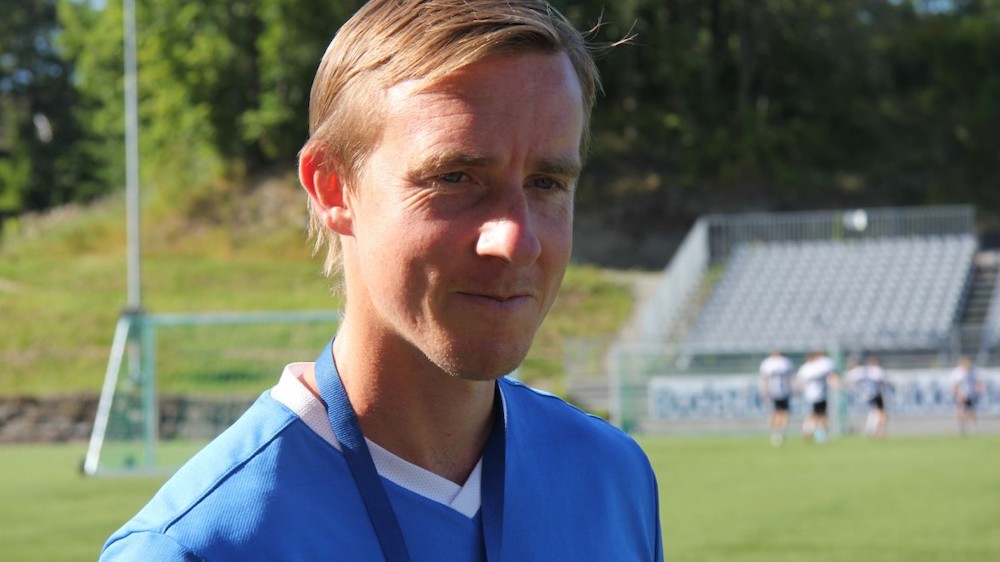KEVIN NICOL insists a potential European Championships playoff with Scotland is the last thing on Norwegian minds as cash-strapped clubs fight for survival.
The former Hibernian, Raith Rovers and Peterhead midfielder, now a player development manager at top-flight outfit Mjøndalen, has witnessed a brutal swathe of cost-cutting measures, with even powerhouses like Rosenborg forced to axe staff.
The players’ union [NISO] in Norway announced on Friday that teams would be allowed to place staff on unpaid leave until the domestic season can commence, albeit that is at the discretion of each club.

The desperate move underlines the precarious state of the domestic game in the country amid the coronavirus crisis, with all training sessions cancelled, stadiums closed, TV revenue uncertain and no income streams for the foreseeable future.
The Eliteserien was due to begin this month but Nicol admits he has no idea when a ball will next be kicked in anger.
He said: “It’s a really challenging, turbulent time. Most of the clubs over here are laying off players and laying off staff because they just can’t afford to pay them.
“This is happening at every club. At Rosenborg they have laid off their entire administrative operation – 40 to 50 staff. They haven’t done it with players yet, but around half the teams in the top-flight have told their playing staff they won’t be paid.
“Sponsors might not pay out money, there will be no fans paying through gates, other income streams will be through the floor. Everything is up in the air.
“We are fortunate in Norway in the sense that we have a really good social benefits system. The government pays a large portion of your salary if you do get laid off, so it’s a little bit easier to do in here than – for example – in Scotland where the players might not get the same support.”
Norway’s European Championship playoff against Serbia, which was due to take place on March 26, has been postponed until June as they seek to book their place at the 2021 showpiece.
The winners of the tie will go on to face either Scotland or Israel in Oslo and, prior to the coronavirus crisis, a clash between the country of his birth and his adopted home was a mouth-watering prospect for Kirkcaldy-lad Nicol.
Now, however, it is something of an afterthought.
Nicol, who has been based in Norway since 2007, continued: “There’s so much optimism about the national team, with Erling Braut Haaland, Martin Odegaard and Sander Berge. It’s a really talented young generation and the feeling of excitement was growing.
“But those games have been postponed and, if anything, the focus has turned to getting the country’s league football back on track.
“Beyond that, the priority is just staying safe, looking after each other and not being totally stupid and taking risks.
“Norway has been hit hard and football isn’t really that important right now.”
Asked whether Uefa’s intention to see Norway host Serbia in June was unrealistic based on the current situation, Nicol added: “Perhaps it is. But there is just so much uncertainty right now.”
Nicol was speaking from his home in the port town of Drammen on the outskirts of Oslo, where he is currently in quarantine.
He returned from a training camp in Turkey last weekend and, as per strict government regulations, is not allowed to have contact with anyone out-with his own household for a fortnight after his return to Norway.
Former Asker FK manager Nicol added: “I got back exactly a week ago so I’ve got another seven days in quarantine – with two kids, aged six and 10. They are off school and all other activities have been cancelled. So that’s a wee challenge.
“I’d expect the divorce rate to be through the roof in Norway when this is all over!
“But we have been good in our house.
“You can go for walks and jogs but they are pretty strict about you not being in any group situations.
“I’m quite lucky as I’m doing an online Masters degree in performance coaching at Stirling University. That keeps me busy and we still have Skype chats with the coaches and some of the players I’m working close with.
“Technology has become very important and it’s allowing us to – as much as possible – continue our work.”